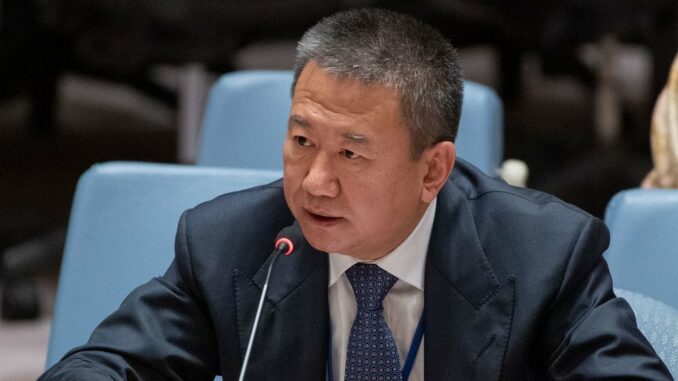
The UN expressed concern on Tuesday October 17 about the risk of “direct confrontation” between the Democratic Republic of Congo and Rwanda, which have been at loggerheads since the reappearance of the M23 rebellion in eastern Congo at the end of 2021.
This risk was raised by UN Secretary-General Antonio Guterres in a recent report on the situation in the DRC, and highlighted on Tuesday by his special envoy to the region, Huang Xia, at a Security Council meeting devoted to the troubled Great Lakes region.
“The risk of a direct confrontation between the DRC and Rwanda, who continue to accuse each other of supporting armed groups (…), is very real”, said Mr. Xia, noting that over the past six months, the security and humanitarian situation “has not improved at all, on the contrary”.
Last year, the M23 rebels seized and continue to occupy large swathes of territory in North Kivu province. Kinshasa blames Kigali for its support of this predominantly Tutsi rebellion, while Kigali in turn accuses Kinshasa of collusion with the FDLR, an armed group of Rwandan Hutu origin.
After six months of precarious calm, fighting resumed in early October, notably involving militiamen presented as “patriots” fighting against the M23. “The military build-up” by the DRC and Rwanda, “the absence of direct high-level dialogue and the persistence of hate speech are all worrying signals that we cannot ignore”, said Huang Xia.
The representatives of the member countries of the Security Council took it in turns to call for restraint, dialogue and a political solution. At the end of the meeting, the representatives of Rwanda and the DRC denounced Kinshasa’s “lack of political will” and Kigali’s “aggression”, while reaffirming their desire to find “a peaceful solution”.
Contrary to UN fears about tensions between Rwanda and the Democratic Republic of Congo, Congolese government spokesman Patrick Muyaya has indicated that direct confrontation or even war is not an option for Kinshasa.
